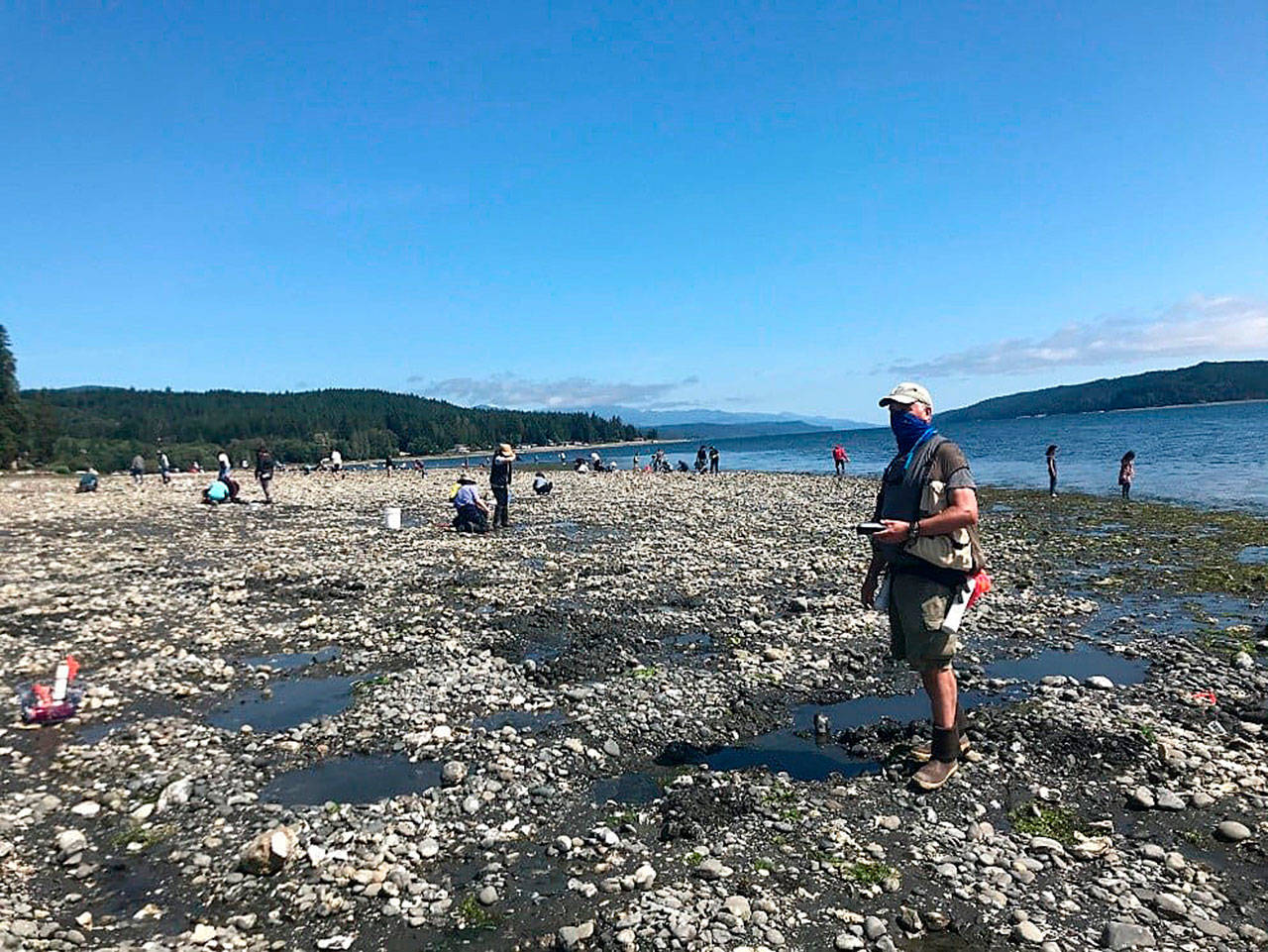OLYMPIA — The Washington Department of Fish and Wildlife shellfish managers have seen record-setting participation in recreational clam and oyster harvest in Puget Sound this year, resulting in three Hood Canal beaches being closed for oyster harvest earlier than expected.
This closure is needed to ensure clam and oyster gathering opportunities in future seasons, according to the WDFW.
Starting on Tuesday, oyster seasons will close at Hood Canal’s Belfair State Park, the Potlatch beaches and Twanoh State Park. The WDFW previously closed clam and mussel seasons on these same beaches to maintain future gathering opportunities after the state reached its share of harvest.
“Unfortunately, one of the things we’ve seen is that people aren’t recognizing that clam and mussel seasons may vary from oyster seasons on some beaches,” said Camille Speck, Puget Sound Intertidal Bivalve Manager for WDFW. “As a result, we must now close oysters on these beaches in order to prevent continued illegal clam harvest that will impact future years’ clam seasons and populations.”
Despite previous clam closures at several sites, managers are reporting consistently high numbers of people showing up to harvest clams, “even though these beaches have signs indicating the closures,” said Speck.
“We want to encourage people to spread out and try some of the less-visited beaches,” said Speck. “The Washington Shellfish Safety Map is designed to help clam, mussel and oyster enthusiasts locate open — and lesser-known — beaches, close to home.”
Harvesters can also find up-to-date information on seasons and shellfish safety information on the Washington Shellfish Safety Map webpage at www.tinyurl.com/shellfishtoxins. Harvesters can also check which beaches are open at www.tinyurl.com/ shellfishbeaches.
“Biotoxin closures are in effect in some areas and conditions can change quickly, so checking this website the same day you plan to harvest is a crucial step,” said Speck.
Harvesters can call the WDFW shellfish hotline at 1-866-880-5431 as well.
WDFW will continue to monitor shellfish harvest levels across Puget Sound and staff expects to make additional beach and season closures this season as necessary.
WDFW reminds harvesters to fill their clam holes after digging, leave oyster shells on the beach, and abide by size and daily limits to help maintain a sustainable resource and avoid getting a ticket. WDFW is also asking oyster and clam harvesters to give other beach visitors and access site staff space and abide by responsible recreation guidelines when visiting. If a park or access site is busy or at capacity, have a backup plan to visit another site.
Quilcene, Dabob Bays
PORT TOWNSEND — The Washington State Department of Health has closed Quilcene Bay and Dabob Bay for the recreational harvest of all species of shellfish due to marine biotoxins that cause Paralytic Shellfish Poisoning.
In Jefferson County, most of the recreational shellfish harvesting beaches have been closed due the rapid spread of PSP. In addition, levels of PSP in Discovery Bay have increased to as high as 977 micrograms of biotoxin per 100 grams of shellfish. The closure level is 80 micrograms. Danger signs have been posted at public access points by the Jefferson County Public Health Department.
The closure includes clams, oysters, mussels, scallops and other species of molluscan shellfish. Crab meat is not known to contain the biotoxin but the guts can contain unsafe levels. To be safe, clean crab thoroughly and discard the guts, sometimes called the “crab butter”.
Marine biotoxins are not destroyed by cooking or freezing. Symptoms of PSP can appear within minutes or hours and usually begins with tingling lips and tongue, moving to the hands and feet, followed by difficulty breathing, and potentially death. Anyone experiencing these symptoms should contact a health care provider immediately. For extreme reactions call 9-1-1.
In most cases the algae that contain the toxins cannot be seen and must be detected using laboratory testing. Therefore, recreational shellfish harvesters should check the map at www.doh.wa.gov/ShellfishSafety or call the Biotoxin Hotline at 1-800-562-5632 before harvesting shellfish anywhere in Washington State. Recreational harvesters should also check state Fish and Wildlife regulations and seasons at wdfw.wa.gov/fishing/shellfish or the Shellfish Rule Change Hotline 1-866-880-5431.

